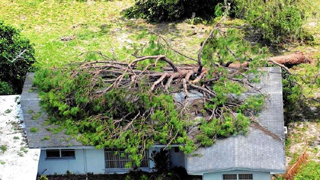|
Answers to your questions about Citizens
Insurance |
Article Courtesy of The Orlando Sentinel
By Susan
Jacobson
Published
November 13, 2015
At its peak in 2012, Florida's property insurer of
last resort had 77,028 residential policies in Central Florida, the bulk
in coastal Brevard and Volusia counties.
By the end of September, state-controlled Citizens Property Insurance
Corporation's portfolio in the region had plunged to 20,644 Central
Florida policyholders, a 73 percent drop.
The drastic reduction is part of a state effort to
push people off the rolls of the company that remains the largest
property insurer in Florida. The stated purpose is to reduce the risk to
taxpayers in the event of another catastrophic hurricane.
But even as Florida enjoys its
10th year without being struck by a major storm,
Citizens isn't going away. It still will be available
for homes and businesses that private companies won't
insure.
Q: What percentage of homeowners in Central Florida are
insured by Citizens?
A: The corporation had 2 percent of the residential
market in Brevard and 3 percent of the market in Volusia
as of June 30. The shares in Orange, Osceola, Seminole
and Lake counties were less than 0.3 percent each. In
the past year alone, Citizens shed more than 36,000
policies in Central Florida. |
|
An aerial view of Hurricane Charley damage from
2004.
|
Q:
When and why was Citizens created?
A: The nonprofit, tax-exempt corporation was formed in 2002 to provide
property insurance to Floridians who couldn't get coverage elsewhere — a
problem that mushroomed after the disastrous hurricane seasons of 2004
and 2005 that brought half a dozen major storms to the state, saddling
Citizens with a deficit of more than $1.7 billion.
Citizens reached a peak of nearly 1.5 million policyholders statewide in
2012, or more than one-quarter of the Florida market, before efforts
began in 2013 to encourage policyholders to find coverage through
private companies. Citizens currently holds about 574,000 policies. "The
government should not be competing with the private sector for
anything," said Orlando insurance agent Tom Cotton. "It should be a
market of last resort."
Q: Why is it a good idea to encourage policyholders to move from
Citizens to private insurance?
A: Citizens often offers policies with more restrictive coverage and
fewer options than private companies, according to the Property
Insurance Clearinghouse, which helps homeowners find private insurance
instead of relying on Citizens. Homeowner Graham Myers of Orange County
said Citizens' rates were cheaper than his current policy with a private
company, but Citizens offered fewer coverages and had high deductibles.
"It felt like half a policy," he told the Orlando Sentinel.
It also reduces the risk for taxpayers in the case of another
catastrophic storm. That's because all Florida insurance policies, not
just those for property, are charged an assessment to cover Citizens
claims from a major hurricane. That surcharge was lifted only recently.
Q: How do Citizens' rates compare with those of private insurers?
A: It depends on the individual property, but the Office of Insurance
Regulation in September approved 2016 rates that generally will be
slightly lower than this year's for inland locations such as Metro
Orlando and higher for coastal areas and South Florida. Current
homeowners don't have to leave Citizens unless a private company offers
premiums that are the same or less. New customers must accept a private
insurer if its premiums are up to 15 percent higher than Citizens'
rates.
Homeowners have more options now that smaller insurance companies are
writing more policies, encouraged by the decade without a severe
hurricane, growing surpluses and affordable rates for reinsurance, which
is insurance for insurance companies. "It's a healthier marketplace when
consumers have choice," said Dave Newell, director of education for the
Florida Association of Insurance Agents. "It means the private market is
working."
Q: Will the private-insurance market be able to handle claims if another
catastrophic hurricane hits Florida?
A: No one knows for sure, but a recent report by the Florida Office of
Insurance Regulation was optimistic. All 67 insurance companies
evaluated passed a "catastrophe stress test." The report concluded that
the results are "encouraging" and the financial strength of
Florida-based property insurers is "promising."
Q: How can consumers check out an insurer?
A: Florida's insurance consumer advocate, Sha'Ron James, advises people
to work closely with an agent, ask questions of Citizens and contact the
company offering new coverage. To file a complaint with the state, go to
myfloridacfo.com/division/Consumers or call 877-693-5236.
|
